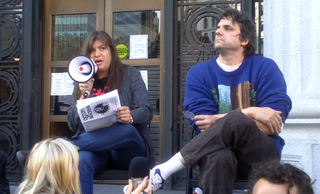A Quote by Lawrence Hill
When it comes to understanding others, we rarely tax our imaginations.
Quote Topics
Related Quotes
He who perceives in the spiritual world must know that at times Imaginations are assigned to him which at first he must forego understanding; he must receive them as Imaginations and let them ripen in his soul as such. In spiritual experience, much depends on a man having the patience to make observations, at first to simply accept them, and to wait with understanding them until the right moment arrives.
Literature and the other arts play with pattern - our brains understand our world by recognizing patterns - and with possibility. The arts harness our sharpest senses, sight and sound, and our richest ways of understanding, in language and narrative. They were our first schools before schools were ever invented. They develop our imaginations, extend our possibilities, and deepen what we can all share.
We need to enact fundamental tax reform. The weight and complexity of our 73,000-page tax code are crushing everyday Americans. We need to radically simplify the tax code so that we can re-start the real engine of growth in our economy. That means our tax code needs to go from 73,000 pages down to about three pages.






































